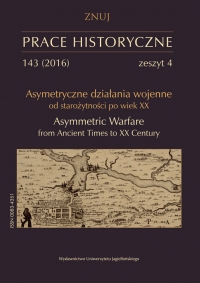Rusini galicyjscy drugiej połowy XIX – początku XX wieku między ukraińskim a wszechruskim wariantem tożsamości narodowej
Galician Rusyns in the second half of the 19th and the early 20th centuries between Ukrainian and Panruskyy projects of national identity
Author(s): Ołena ArkuszaSubject(s): Christian Theology and Religion, Recent History (1900 till today), Government/Political systems, 19th Century, Politics and Identity
Published by: Wydawnictwo Uniwersytetu Jagiellońskiego
Keywords: Galicia; national identity; Ukrainians; Russophiles;
Summary/Abstract: The formation of modern Ukrainian national identity in Galicia in the 19th – the early 20th century was a long and difficult process, not devoid of alternatives. The starting point was the delimitation of the cultural and spiritual space of the Commonwealth, declaring that the Galician Ukrainians are entitled to independent national development separate from the Poles. Although among the Galician Ukrainians there were supporters of a two-stage national identity ‒ “gente Rutheni, natione Poloni” ‒ the Ukrainian-Polish relations in Galicia developed by the logic of a struggle between nations. After separating from the Poles, the ideologues of the national movement of Galician Rusyns faced the task of defining “their” territory and history, of forming literary language. They expected serious difficulties on this way. The conservative attachment to “old Rus,” backed by a large role of the Greek Catholic clergy, has created a database for searches of national identity within a wide pan-Russian space. However, the Russophile orientation was only a step to the establishment of modern Ukrainian identity, and an attempt of some of its ideologues to equate pan-Russian space with Russian space led to its split and fall in popularity. Much more attractive to Galician Ukrainians was the “Ukrainian project” built by means of the new “Shevchenkivska” culture from Dnieper Ukraine. With the turn of the 19th and 20th century the idea of an independent Ukrainian democratic state, which had to overcome all contradictions, began to function as a kind of perfect recipe for happiness. It captured more and broader sectors of the population, although it seemed achievable at a remote time in the future.
Journal: Prace Historyczne
- Issue Year: 144/2017
- Issue No: 2
- Page Range: 277-302
- Page Count: 26
- Language: Polish

